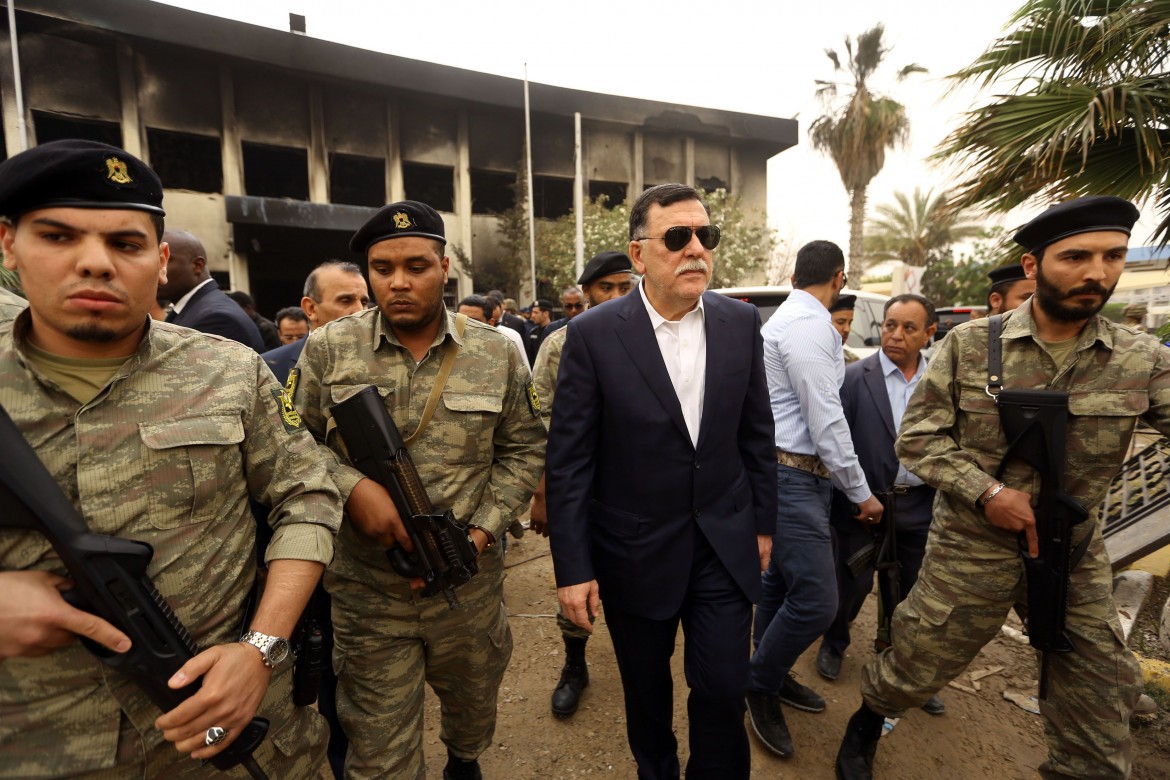Analysis
This week in Libya: gunfire in the streets and 15 migrants dead
The impression one is left with is that every mock-authority in the country is trying to seize a favorable moment to show their strength, if only for a few hours, in order to remind everyone else of their existence and thus of their 'legitimacy' to be a party in a possible future peace process.

Was it a regular peaceful Ramadan Saturday or the day of a coup? It is difficult to piece together what happened between Thursday and Saturday in Tripoli. Local sources we have contacted are reporting that the situation is now peaceful, with no gunfire in the streets.
However, on Thursday two civilians were killed in clashes between militias in the Ras Hassan district, and Saturday international agencies reported the expulsion from the city of the Presidential Guard (protecting the GNA, the weak unity government with UN backing led by Prime Minister Sarraj), and that the Presidential Council had been surrounded by armed militiamen.
According to the Libyan Express, three militias—the Halbous Brigade from Misrata, the Tripoli Revolutionaries Brigade and the Ghaniwa Brigade, which in theory have a role in protecting the Sarraj government and are “employed” by the Interior Ministry—were said to have seized control over the airport of the capital city and over the Presidential Council.
However, the Minister of the Interior personally went on record denying this story: the GNA, he said, is safe. He did not, however, deny that the Presidential Guard had been sent away from their positions. Why? Former head of security Khaled al-Tabib, interviewed by the Nova news agency, had one possible answer: that behind the retreat ordered by the GNA was what emerged from the findings of the investigations on the cell of supporters of the former Gaddafi regime that was uncovered last week.
The lack of mutual trust between the Presidential Guard and the plethora of militias with ties to the government, due to the presence of pro-Gaddafi holdouts among the Popular Front for the Liberation of Libya (organized in December 2016, with Saif al-Islam as its leader and presidential candidate), convinced Sarraj to have the Front disbanded by calling upon the Special Deterrence Forces (Rada), the elite pro-Islamist unit. After 20 arrests in recent days, possible plots by the Front for attacks in the southern areas of Tripoli may have been brought to light.
The overall picture is of chaos and partial information: Libya remains a place where a thousand different local authorities and city-states are run by countless armed groups. In this context, innumerable small coup attempts have been a fixture for years, not important enough to be noticed, either failing immediately or whose existence is simply denied by the authorities.
The impression one is left with is that every mock-authority in the country is trying to seize a favorable moment to show their strength, if only for a few hours, in order to remind everyone else of their existence and thus of their “legitimacy” to be a party in a possible future peace process. In this case, the triggering event seems to have been the meeting in Paris on Tuesday involving both Sarraj and Haftar.
In spite of all this, Italy considers Libya to be a safe enough country to play the role of an enormous detention center for migrants. The living conditions in these prisons have been denounced for months: sexual abuse, torture, beatings, in overcrowded buildings where all the necessities are lacking.
On Wednesday evening, over a hundred refugees managed to escape from one of these centers in Bani Walid, southeast of Tripoli. In response, the militia members, which had captured the migrants while they were travelling from Eritrea, Somalia and Ethiopia and were holding them prisoner awaiting ransom from their families, opened fire on the fugitives. There were 15 dead, and 25 wounded were treated at the Doctors Without Borders hospital in Bani Walid.
The accounts by the survivors are horrifying: some had been imprisoned for three years, subjected to continuous torture, evidence of which could be seen by the doctors in the form of scars and infected wounds. Now they are in Tripoli, in an official, “recognized” detention center, but where conditions are not much better than in the unofficial one they escaped from. Because of the complicit silence of Italy, which has partnered with the armed militias in order to stop migrant arrivals, and France, which has re-inserted itself into the complex Libyan political puzzle, it is not even possible to give a full account of the detention camps that human traffickers have set up throughout the country, from the desert to the coast.
While at Derna the offensive against Islamists by the newly-strengthened General Haftar is ongoing (resulting in 27 deaths and over 500 displaced families since May 7, according to the UN, which is calling it a humanitarian crisis), necessary not so much for strategic reasons as to show that Haftar himself is alive and kicking, and while car bombs are going off in Benghazi (the last one two days ago, killing 7), on Tuesday Macron organized a new summit at the Elysee between the rebel general, Prime Minister Sarraj, Saleh, the head of the Tobruk-based Libyan House of Representatives, and a number of militia leaders.
Macron’s intention, already made plain at the previous summit in July 2017, is to secure a sphere of influence in which France’s Total can operate. These moves are causing concerns in Rome, but also in Egypt, Haftar’s main sponsor: Cairo sources are calling the French agenda a pro-Islamist one, weighed towards figures from the Muslim Brotherhood (an enemy of Egyptian President al-Sisi), because of Paris’s close cooperation with Turkey and Qatar.
Originally published at https://ilmanifesto.it/caos-calmo-a-tripoli-spari-sui-migranti-in-fuga-15-vittime/ on 2018-05-27
